Simple Present Be
I am
You are
He is
She is
It is
We are
You are
They are
Contractions
I´m
You´re
He´s
She´s
It´s
We´re
You´re
They´re
Negative
I´m not
You aren´t
He isn´t
She isn´t
It isn´t
We aren´t
You aren´t
They aren´t
Interrogative
Am I...?
Are you...?
Is he...?
Is she...?
Is it...?
Are we...?
Are you...?
Are they...?
Simple Past Be
I was
You were
He was
She was
It was
We were
You were
They were
Negative
I was not
You were not
He was not
She was not
It was not
We were not
You were not
They were not
Interrogative
Was I...?
Were you...?
Was he...?
Was she...?
Was it...?
Were we...?
Were you...?
Were they...?

Thursday, March 29, 2012
Tuesday, March 27, 2012
PICTIONARY.
season.

saute.

roast.
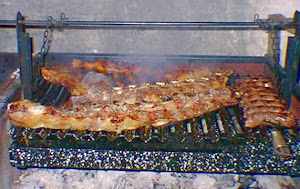
regrigerate.

puree.
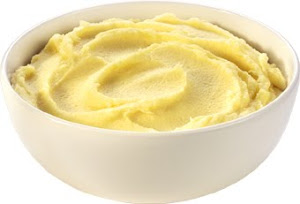
pour.

poach.
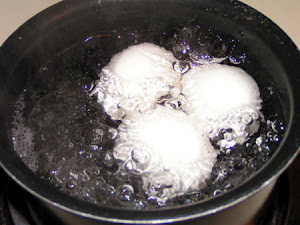
peel.
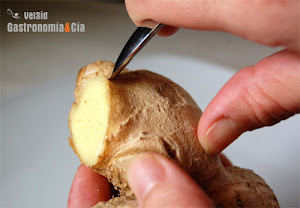
parboil.

mix.
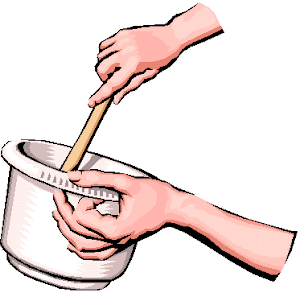
mince.
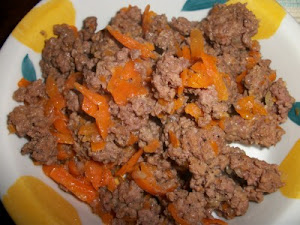
melt.

mash.

marinate.
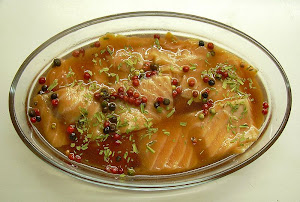
knead.
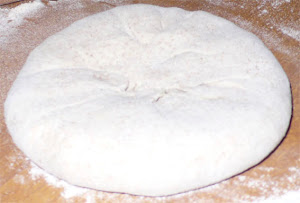
grind.
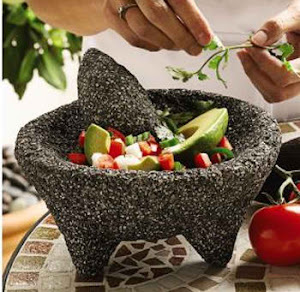
grease.

grate.
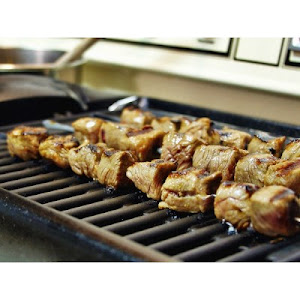
freeze.

dreep fry.
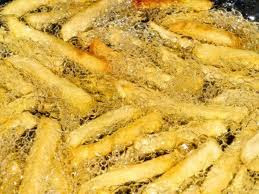
dice.

cover.

cook.

coat.

chop.

brown.

broil.

bread.

braise.
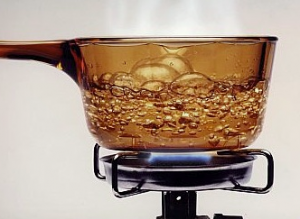
boil.
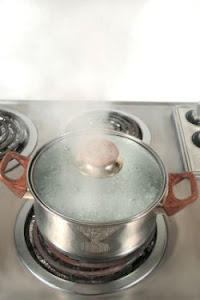
blend.
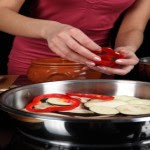
barbecue.

bake.

add.

Wednesday, March 21, 2012
SIMPLE PRESENT - PRESENT CONTINUOUS.
Count nouns.
- can be singular and plural.
- we use many.
- we use are. (every thing that you can count).
Example:
- kilogram-pl- kilograms.
- how many kilograms of strawberries do we need?.
- are there any watermelons in the box?.
yes, there are.
Non-count nouns.
- only singular.
- we use much.
- we use is.
- can be singular and plural.
- we use many.
- we use are. (every thing that you can count).
Example:
- kilogram-pl- kilograms.
- how many kilograms of strawberries do we need?.
- are there any watermelons in the box?.
yes, there are.
Non-count nouns.
- only singular.
- we use much.
- we use is.
Examples:
- milk- singular.
- how much sugar do we have?.
- there is white cheese in the evidgal
- there is white cheese in the evidgal.
is there any cheese in your house?.
Containers and quantities.
- can.
- box.
- bottle.
- bag.
- loaf.
Simple present.
- routine / habit / repeated action.
- if you have adverbs of frequency.
(always, never, sometimes).
- if you have "every"
day
month
tuesday
- use do / does.
- use don`t / doesn`t.
Important: * like, need, want, have.
* 3rd person singular + s / es.
he / she / it.
- routine / habit / repeated action.
- if you have adverbs of frequency.
(always, never, sometimes).
- if you have "every"
day
month
tuesday
- use do / does.
- use don`t / doesn`t.
Important: * like, need, want, have.
* 3rd person singular + s / es.
he / she / it.
Present continuous.
- action is now.
- at this moment.
- at the moments of speaking.
- use am / is / are.---- am not isn`t, aren´t
- use verb + ing.
- we can use it for the future.
don`t say: we cook dinner now.
don´t say: I am cooking dinner every day.
- at this moment.
- at the moments of speaking.
- use am / is / are.---- am not isn`t, aren´t
- use verb + ing.
- we can use it for the future.
don`t say: we cook dinner now.
don´t say: I am cooking dinner every day.
Wednesday, March 14, 2012
DICTIONARY.
A LEMON.
A LIME.
AN ORANGE.
GRAPES.
A PINEAPPLE.
BANANAS.
A PEAR.
APRICOTS.
PEACHES.
STRAWBERRIES.
RASPBERRIES.
A HONEYDEW MELON.
AN AVOCADO.
A PAPAYA.
A MANGO.
A KIWI.
A WATERMELON.
RAISINS.
FIGS.
PRUNES.
DATES.
AN EGG.
AN ONION.
A TOMATO.
A POTATO.
A PEPPER.
PEAS.
CARROTS.
CABBAGE.
BROCCOLI.
CAULIFLOWER.
LEEKS.
CUCUMBERS.
BRUSSELS SPROUTS.
CORN.
LETTUCE.
ASPARAGUS.
AN EGGPLANT.
BEANS.
CELERY.
GARLIC.
A TANGERINE.
A GRAPEFRUIT.
Subscribe to:
Comments (Atom)